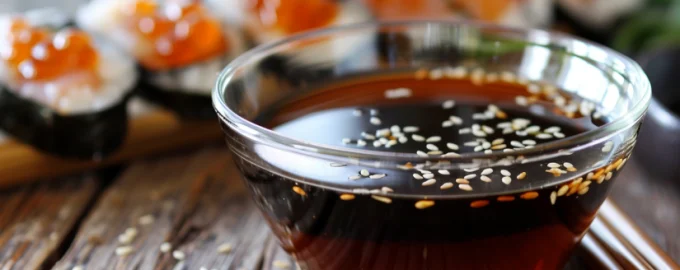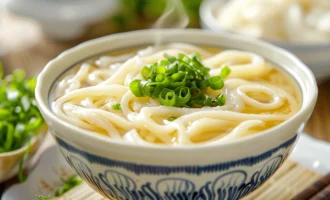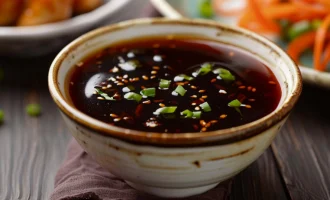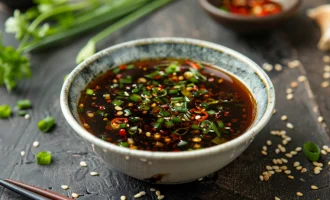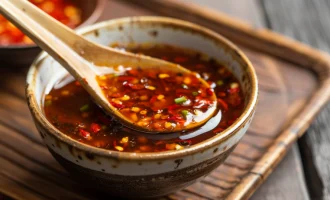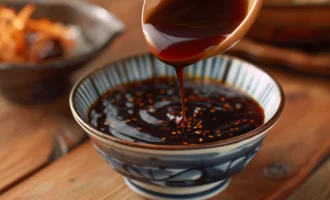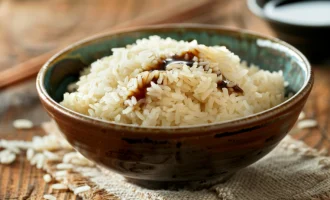Unagi sauce, also known as eel sauce, is a traditional Japanese condiment known for its rich, sweet, and savory flavor profile. This sauce is most commonly associated with unagi (eel) dishes, such as unagi don (eel rice bowl) and unagi sushi rolls. Its history is deeply intertwined with Japanese cuisine, especially in dishes featuring grilled eel, where the sauce enhances the smoky flavor of the eel with its thick, glossy glaze. Beyond eel, unagi sauce is versatile and can be used as a marinade or glaze for various types of sushi rolls, grilled fish, and meats.
- Soy sauce 100 g
- Mirin (sweet rice wine) 100 g
- Sake 50 g
- Sugar 50 g
- In a small saucepan, mix together the soy sauce, mirin, sake, and sugar. The combination of these ingredients forms the base of unagi sauce, offering a balance between sweetness, saltiness, and umami.
- Place the saucepan over medium heat and bring the mixture to a gentle simmer. Stir continuously until the sugar is fully dissolved.
- Once the sugar has dissolved, reduce the heat to low and let the sauce simmer gently. The goal is to reduce the sauce by approximately one third, which could take about 20-30 minutes. Keep an eye on the sauce to ensure it does not boil over or burn.
- After the sauce has thickened and reduced, remove it from the heat and let it cool. As it cools, it will thicken further to create a glossy, rich sauce perfect for drizzling over sushi rolls or grilled dishes.
- For an ultra-smooth sauce, you can strain it through a fine mesh sieve to remove any particles.
Storage Tips
Unagi sauce can be stored in an airtight container in the refrigerator for up to a month. Its high sugar and salt content act as natural preservatives. For longer storage, it can be frozen and thawed as needed.
Useful Properties of the Main Ingredient
Soy sauce, the primary ingredient in unagi sauce, is rich in amino acids, which are the building blocks of protein. It also contains trace amounts of minerals like magnesium and potassium. Mirin, another key ingredient, adds not just sweetness but also aids in creating a glossy appearance on food when glazed and cooked.
Interesting Facts
- Cultural Significance: Unagi dishes, particularly unagi no kabayaki (grilled eel), are a summer tradition in Japan, believed to provide strength and stamina during the hot months.
- Historical Usage: The use of unagi sauce dates back centuries in Japan, evolving alongside the country’s rich tradition of fish and seafood preparation.
- Versatility: While traditionally used with eel, unagi sauce has found popularity worldwide in various dishes, including sushi rolls not containing eel, showcasing its versatility as a condiment in both Japanese and fusion cuisines.
This unagi sauce recipe captures the essence of Japanese culinary tradition, offering a simple yet profound way to enhance the flavor of numerous dishes. Whether used as a glaze for grilled foods or as a flavorful addition to sushi rolls, its deep, complex flavors promise to elevate your cooking.

